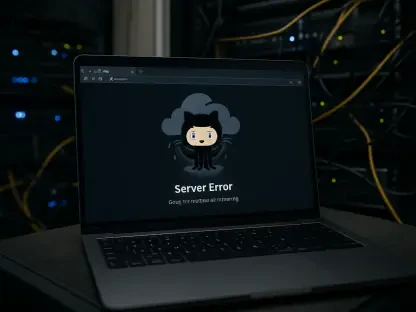In the rapidly evolving landscape of cybersecurity, Chief Information Security Officers (CISOs) play a pivotal role in safeguarding organizational assets. To stay ahead of emerging threats and enhance their professional growth, CISOs can leverage various cybersecurity organizations. These associations offer certifications, networking opportunities, and resources that are crucial for career advancement and effective security management. This article delves into the roles and offerings of these organizations, the challenges faced by CISOs, the importance of diversity, and opportunities for CISOs aspiring for board-level positions.
ISC2: Bridging the Cybersecurity Workforce Gap
The International Information System Security Certification Consortium (ISC2) stands as a cornerstone in the cybersecurity field, focusing extensively on cybersecurity and information security. With a global membership totaling around 664,000, ISC2 aims to address the significant workforce gap in cybersecurity, currently estimated at 4.8 million professionals. The consortium is renowned for its certifications, particularly the Certified Information Systems Security Professional (CISSP), which is considered the “gold standard” within the industry and is highly sought after by CISOs and other cybersecurity professionals.
ISC2’s offerings extend well beyond certifications. The organization provides local chapters, regional events, and ample opportunities for professional development, emphasizing lifelong learning and career advancement. These resources prove invaluable for CISOs seeking to stay updated on the latest trends and best practices in cybersecurity. The community-driven aspect of ISC2 allows members to exchange ideas and insights, thereby fostering an environment of continuous improvement and collaboration in the face of ever-evolving cyber threats.
ISACA: Comprehensive IT Governance and Cybersecurity
The Information Systems Audit and Control Association (ISACA) emerges as another key player, focusing on broader IT governance, audit, risk management, and cybersecurity. With over 180,000 members, ISACA offers a robust mentorship program through its Engage platform. Moreover, the association supports women in IT via the SheLeadsTech initiative, promoting gender diversity and inclusivity within the tech field. By providing more than 70 free Continuing Professional Education (CPE) credits annually, ISACA aids in the continuous professional development of its members, which is crucial for CISOs to maintain their knowledge and skills.
ISACA’s certifications, such as the Certified Information Security Manager (CISM) and the upcoming Certified Cybersecurity Operations Analyst (CCOA), are highly regarded in the cybersecurity community. These certifications validate the skills and knowledge of the holders, enhancing their professional credibility. Additionally, ISACA hosts local chapter events and global conferences, providing CISOs with ample opportunities for networking, knowledge enhancement, and keeping abreast of the latest advancements and methodologies in cybersecurity.
ISSA: Fostering Career Progression and Networking
The Information Systems Security Association (ISSA) serves over 7,500 members spread across more than 150 chapters worldwide, advocating for the management of technology risks and the protection of critical information and infrastructure. The organization emphasizes mentorship, career progression, and networking, offering educational events and resources designed to keep members well-informed about the latest developments and best practices in cybersecurity.
Unlike other associations, ISSA does not offer its own certifications but supports various security-related certifications through partnerships. This unique approach allows CISOs to benefit from a wide range of recognized credentials while leveraging ISSA’s extensive network and resources. By engaging with ISSA, CISOs can tap into a community of like-minded professionals, share experiences, and gain insights into effective strategies and practices for mitigating cybersecurity risks.
CSA: Advancing Cloud Security Knowledge
The Cloud Security Alliance (CSA) is highly focused on the education, certification, and professional development of cloud and cybersecurity professionals. With over 126,000 volunteers across more than 100 chapters in 50 countries, CSA addresses the specific vulnerabilities associated with cloud computing and promotes best practices in cloud security. The organization offers a variety of certifications such as the Certificate of Cloud Security Knowledge (CCSK), Certificate of Competence in Zero Trust (CCZT), and Certificate of Cloud Auditing Knowledge (CCAK), which are essential for CISOs managing cloud infrastructure and operations.
CSA encourages organizations to join to gain access to valuable resources, insights, and a collaborative global cloud security community. This collective approach helps CISOs stay informed about the latest trends, challenges, and solutions in the rapidly changing realm of cloud security. By participating in CSA, CISOs can ensure their organizations are resilient against potential threats, benefiting from the shared knowledge and expertise of cloud security professionals worldwide.
Community and Professional Development for CISOs
For many CISOs, the most valuable aspect of professional organizations lies in the exchange of real-world security experiences and insights, which significantly bolster organizational security standards. Networking, conferences, and industry reports are critical for staying informed about cutting-edge trends and best practices. Notable professional societies, such as the SANS CISO Network, offer enriched peer-to-peer networking and a wealth of development resources, including expert content, reports, presentations, events, and in-person networking sessions.
The CISO Society provides presentations, workshops, frameworks, and reports alongside virtual and in-person events that further facilitate knowledge sharing and skill development. Similarly, CISO ExecNet focuses on networking among senior infosec professionals through roundtables, national symposiums, newsletters, and other resources. The CyberRisk Collaborative (CRC) supports CISOs and senior security executives with tools, resources, and regional events aimed at fostering effective knowledge sharing and collaboration.
Promoting Diversity in Cybersecurity
Diverse teams often achieve better outcomes, as numerous studies from McKinsey and Gartner have shown. ISC2 has discovered that diversity within security teams enhances overall outcomes and team success. However, gender and ethnicity disparities are still prevalent in the cybersecurity field. Various professional groups, such as Women in Cybersecurity (WiCyS), BlackGirlsHack, WOMCY Latam Women in Cybersecurity, Breaking Barriers Women in Cybersecurity, InfoSec Girls, She CISO Exec, Women Cybersecurity Society, and Cyversity are actively working to eliminate these disparities.
These associations focus on attracting, retaining, and advancing women and underrepresented communities within cybersecurity. Industry leaders agree that encouraging diverse demographics, particularly women, to consider and pursue careers in cybersecurity is critically important. Beyond gender diversity, organizations like Genius Armoury are working towards making the cybersecurity realm more inclusive by supporting neurodiverse professionals, thus promoting a more holistic approach to diversity in cybersecurity.
Preparing CISOs for Board Appointments
For CISOs aspiring to board positions, understanding the intersection of technology and leadership within boardrooms is paramount. Several organizations provide insights and training to assist with this transition. The National Association of Corporate Directors (NACD) offers a peer-to-peer network coupled with directorship and cybersecurity certifications, catering to over 24,000 individuals and 1,750 boards across 20 chapters in 35 locations. This organization specifically helps CISOs gain the skills and knowledge needed to navigate the complexities of board governance.
Additionally, the Digital Directors Network (DDN) focuses on governance related to digital, cybersecurity, and systemic risk, preparing boardrooms to manage security risks across their digital systems. The Private Directors Association (PDA) promotes board governance excellence among private companies through a range of courses and a network of over 3,400 members, including directors, executives, and company owners. These organizations equip CISOs with the strategic and leadership skills required to bridge the gap between technology and effective boardroom governance.
Industry-Aligned Associations
Industry-specific Information Sharing and Analysis Centers (ISACs) play a critical role in tailoring cybersecurity threat intelligence and best practices to the unique needs of different sectors. Through collaborative efforts, these ISACs increase organizations’ overall understanding of threats and their capacities to counter them effectively. For example, the Financial Services ISAC (FS-ISAC) focuses on the financial sector, offering regional and global summits, intelligence feeds, and member groups centered on specific functional interests.
Similarly, the Research and Education Networking ISAC (REN-ISAC) caters to higher education and research communities, while Australia’s Critical Infrastructure ISAC (CI-ISAC) supports critical infrastructure sectors. Membership in ISACs typically requires organizations to have a CISO, CIO, or equivalent IT security executive involved and includes summits, intelligence feeds, and other collaborative tools designed to enhance sector-specific cybersecurity resilience.
Conclusion
In the constantly evolving field of cybersecurity, Chief Information Security Officers (CISOs) are essential in protecting organizational assets. To stay ahead of new threats and advance their careers, CISOs can benefit greatly from joining various cybersecurity organizations. These groups offer valuable certifications, networking opportunities, and resources that are key for professional development and effective security management.
This article explores the roles and benefits provided by these organizations, as well as some of the challenges CISOs face. Leveraging these resources can not only enhance a CISO’s skill set but also provide the necessary support for improving security measures within their organizations.
Additionally, the importance of diversity in cybersecurity roles is highlighted. A varied team brings different perspectives and ideas, which is crucial for comprehensive threat management. The article also points out opportunities available for CISOs who aim for board-level positions, emphasizing that advanced knowledge and certification from these organizations can make a significant difference.
In summary, cybersecurity organizations are instrumental in helping CISOs sharpen their skills, stay current with emerging threats, and meet the challenges of their demanding roles more effectively. By participating in these organizations, CISOs can also work towards achieving higher-level positions, thereby contributing more significantly to the overall security landscape.









